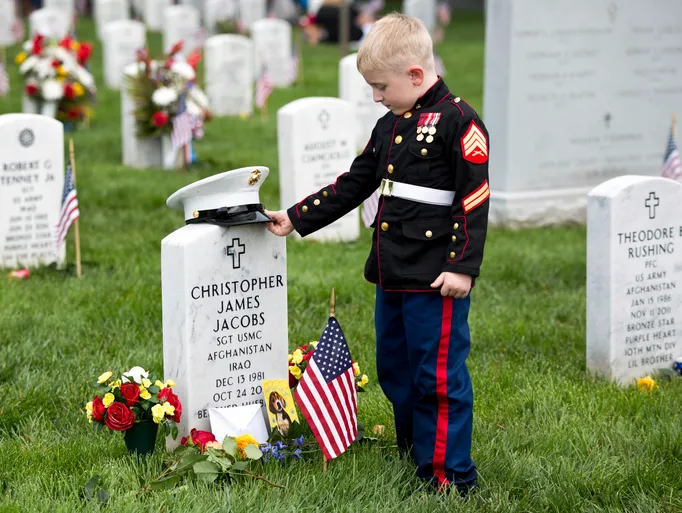
He died in a far away land. On a road outside a town whose name no one back home could easily pronounce. There was no big battle reported in the news accounts, nor any strategic maneuver to which his death could be attributed. Just a short-lived attack on an army convoy moving from one place in a desolate foreign land to another.
Perhaps there was a reason why the insurgents — which is what the army now called these faceless enemies — decided to attack his convoy rather than another. More likely, it was the opportunity that made the decision, the presence of a convoy on an unprotected road being all the logic required for the monster of war to feed on another youngster’s life.
If there was a reason for the attack it seemed too obvious to be worth the price of his death. For every casualty was now a strategic prize in and of itself. A minor victory in the war to convince the American TV audience that the loss of each soldier was without purpose when it happened in a war that seemed itself without purpose.
His was a company of military police. They had no strategic mission other than to help bring order to a land that had been brutal and violent since before the sands took sovereignty over its vast, unwelcoming terrain.
And now this young man who was a stranger to us in life becomes a brief visitor to our world through the magic of television. We see his photo, taken after he had already left the playing fields of his youth to be groomed by a military that had offered him . . . what? Adventure? Four years of college tuition? A chance to see the world? A ticket out of the small Southeastern Massachusetts town that had known and nurtured him for 18 of his 20 years?
False promises, all. The adventure ended far too quickly. There would never be a college career. The world, it turned out, had nothing to show that was worth the price he would be asked to pay. And the last thing he would be given was a return ticket to this small Southeastern Massachusetts town. Coming home in a box draped with an American flag and accompanied by a military escort.
He was a star on his high school football team, or so we are told by his former coach. And though we never saw him play nor cheered his efforts we somehow feel we know him better because he had excelled in this quintessential American sport. Neighbors tell us what a good boy he had been and what a tragic loss this is for anyone who knew him.
The TV news reporters, faced with a family not ready to share its grief, repeatedly show us the exterior of the simple ranch style home in which the vanquished soldier had lived out his boyhood. A large American flag is draped next to the front door, originally placed there most likely to remind the world of all the sons and daughters off fighting in distant lands. Now, ironically, it serves as a mute testament to one son who would soon be coming home.
Near the end of the news report we find ourselves at Town Hall listening to selectmen react to the town’s first loss of a native son — the 13th Massachusetts casualty of the war we are told. One selectman who graduated high school a few years ahead of the soldier remembered him as positive and upbeat, a man fighting for what he believed was right. Another, much older in years and less certain about why the soldier had gone to war, merely stated, with the power that comes when profound truths are offered simply, “It’s a great loss. It hurts. He was one of our own.”
The news report ends with yet one more glimpse of the soldier’s home lit up by the lights of the TV crew, the American flag still hanging next to the front door, the unseen family still grieving in silence behind the weathered shingles. They more than anyone must be searching to find meaning in the death of one so young. They better than anyone know the truth of the elder selectman’s words.
“He was one of our own.”

What a beautiful column. Thank you, Paul. ♥️
Thank you for your kind words, Davalene. Much appreciated.
Paul
Beautifully written. Gut wrenching, poignant.
Thank you for your kind words, Harris!
Paul